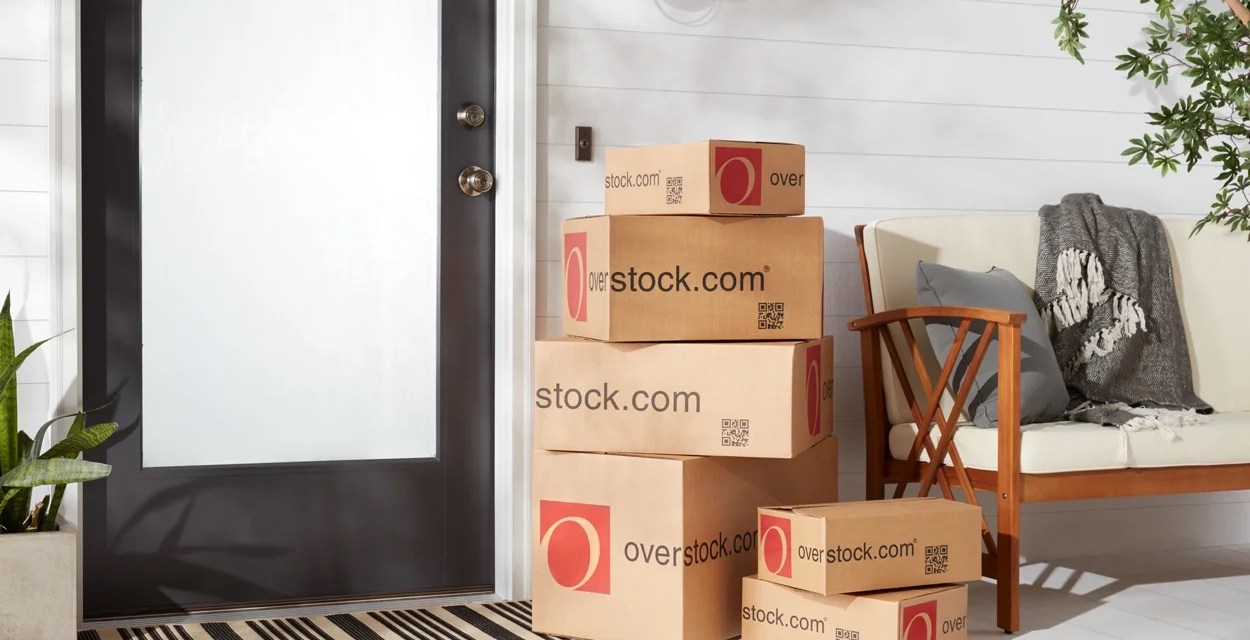Overstock is poised to get brand, data with Bed Bath & Beyond winning bid

Overstock.com’s winning bid for a slew of Bed Bath & Beyond’s business assets — including its brand name — is poised to give it valuable new tools to drive traffic and engage customers.
A judge overseeing Bed Bath & Beyond’s bankruptcy authorized a $21.5 million stalking horse bid from Overstock.com following an auction on Wednesday that failed to interest any higher-paying competitors.
The deal includes intellectual property, domain names and mobile platforms, plus Bed Bath & Beyond’s “business data,” an all-encompassing term that includes vendor and supplier lists, transaction histories and customer contact information.
Buying the brand and website of a well-known retailer like Bed Bath & Beyond would allow Overstock to continue to operate it in an e-commerce capacity — or simply redirect any web traffic to its own site. But either way, the deal is considered a win for Overstock, whose stock price rose following the news of the auction.
Steve Greenspon, the CEO of home products brand Honey-Can-Do and the chair of the International Housewares Association, called the bid “a smart move” for Overstock, which last year narrowed its focus to be a home-and-furniture marketplace.
“Overstock is revamping who they are, and home is a big part of Overstocks rebranding. The IP and the assets they’re bidding on, it makes perfect sense from a brand point of view,” he said.
A spokesperson for Overstock declined to comment to Modern Retail, with a hearing scheduled for Tuesday to finalize the sale. Two other parties are labeled backup bidders for select assets; Jowa Brands LLC for the private label bedding line Wamsutta, and Ten Twenty Four Inc for Beyond.com. A separate auction process will be held for Buybuy Baby on Wednesday, with several parties — including registry service Babylist — expressing interest in the digital assets or the physical stores.
Ad position: web_incontent_pos1
If the Bed Bath & Beyond deal is ultimately finalized, Overstock is buying a brand name with a 50-year legacy. The store was founded in 1971 in Springfield, New Jersey, and grew to a multi-billion dollar brand with big box stores in suburban shopping malls across the country. It curried extensive favor with shoppers by stuffing mailboxes with 20% coupons on a regular basis. But the retailer fell into debt as e-commerce took off, and several turnaround attempts failed.
Mark Felger, co-chair of Cozen O’Connor’s bankruptcy group, said the purpose of an auction is to test the value of the assets. While the $21.5 million figure might seem low for a brand as well-known as Bed Bath & Beyond, Felger said it’s rare for a debtor to get the value that they internally believe the assets are worth.
“If there’s more value, someone would’ve participated and paid higher,” he said.
Felger said competitors who pick up digital assets might want to keep the brand alive, or attempt to squash a competitor for good by burying the name. Pier 1, another home retailer that filed for Chapter 11 after about five decades of operation, closed all its physical stores in 2020. But its online presence continues to operate after Retail Ecommerce Ventures bought its trademark name, intellectual property, data and other assets for $31 million.
Daniel McCarthy, an assistant professor of Marketing at Emory University’s Goizueta School of Business, said the win is a decent-sized bet for Overstock whether it redirects traffic or continues to the operate the brand.
Ad position: web_incontent_pos2
The web presence and mobile platform are likely the primary driver of the purchase price, with the data piece serving as “icing on the cake,” McCarthy said. That includes search behavior, promotional strategies and looking at what consumer preferences are out there. Overstock could take that data and in turn expand its audience, send more direct mail or catch a glimpse into shopping habits that could inform its new strategy
“That data could be helpful in understanding consumer preference for home goods products,” McCarthy said. “They can learn from all the experiments Bed Bath & Beyond has been running.”
Despite the benefits Overstock could glean, it’s unlikely to capture the entire market that Bed Bath & Beyond is leaving behind. No buyer emerged to take over the brick-and-mortar presence, which had about 360 stores left after 400 closed down last year. The remaining stores are now advertising discounts as high as 70% as the bankruptcy court prepares to deal with unexpired leases.
The physical stores of Bed Bath & Beyond, Greenspon said, were prime for discovery because they offered a “wide and deep” assortment. This array of niche products meant shoppers might purchase products they didn’t have on their list that caught their eye while winding through the aisles. Such impulse purchases aren’t as common online, or at retailers with a lesser assortment.
“When a big retailer like that goes away in a certain specialist area, the entire market doesn’t just go to other retailers,” Greenspon said. “A portion of it does go away, unfortunately. Especially the impulse portion of it.”

